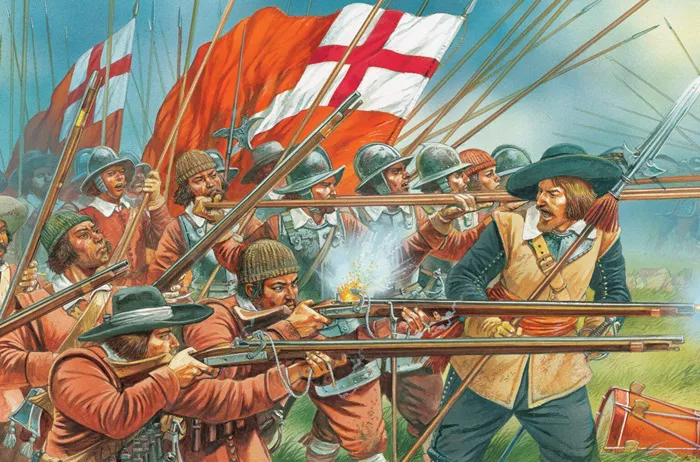January 4 has witnessed several significant events throughout British history, marking it as a notable day. This article delves into these events, providing detailed accounts of their historical context and implications.
What Happened on January 4 in British History?
The Battle of Reading (871)
One of the earliest recorded events on January 4 is the Battle of Reading, which took place in 871 during the Viking invasions of England. This battle was part of a larger conflict between the Saxon kingdoms and the invading Danish forces. The Danes had invaded Wessex, one of the prominent Anglo-Saxon kingdoms, and the Saxon army, led by King Æthelred, faced them at Reading.The battle was a decisive encounter in which the Saxons were ultimately forced to retreat. This retreat allowed the Danes to continue their advance into Wessex, significantly impacting the region’s stability. King Alfred the Great, who later became a significant figure in resisting Danish incursions, was deeply affected by this conflict. Much of his reign was dedicated to addressing the challenges posed by Viking invasions, and the events at Reading were pivotal in shaping his military strategies and policies.
The English Civil War Begins (1642)
Another crucial event that occurred on January 4 is related to the English Civil War, which began in 1642. On this day, armed soldiers entered the House of Commons under the orders of King Charles I. This act was a direct challenge to parliamentary authority and marked a significant escalation in tensions between the monarchy and Parliament.The entry of soldiers into Parliament was seen as an attempt by Charles I to assert his control over the legislative body and suppress dissent. This moment is often regarded as a catalyst for the English Civil War, which would lead to years of conflict between Royalists (supporters of the king) and Parliamentarians (supporters of parliamentary governance). The war ultimately resulted in the trial and execution of Charles I in 1649 and established a brief period of republican rule under Oliver Cromwell.
Birth of Sir Isaac Pitman (1813)
On January 4, 1813, Sir Isaac Pitman was born. He is best known for developing the first major shorthand system, which revolutionized how people recorded speech. His method allowed for faster writing and became widely adopted in various fields, including journalism and administration.Pitman’s contributions extended beyond shorthand; he founded a publishing company that became one of the leading educational publishers globally. His work laid the groundwork for modern shorthand systems and influenced many aspects of written communication. Additionally, Pitman was an advocate for health and wellness, adopting teetotalism and vegetarianism later in life, which he credited for his productivity.
Launch of The Daily Graphic (1890)
Another significant event on January 4 occurred in 1890 with the launch of The Daily Graphic, Britain’s first daily illustrated newspaper. This publication marked a shift in journalism by combining news reporting with visual imagery, catering to an audience that increasingly sought more engaging content.The Daily Graphic set a precedent for future newspapers by emphasizing illustrations alongside written articles. It played a crucial role in shaping public opinion during its time and influenced how news was presented in print media. The paper eventually merged with another publication, but its impact on journalism remains noteworthy.
Death of Donald Campbell (1967)
On January 4, 1967, Donald Campbell, a renowned British speedboat racer, tragically died while attempting to break his own world water speed record on Coniston Water in Cumbria. His jet-powered boat, Bluebird K7, somersaulted at high speed during this attempt.Campbell’s legacy as a pioneer in speed racing is significant; he was one of only a few individuals to hold both land and water speed records simultaneously. His death marked a somber moment in British sporting history and highlighted the dangers associated with high-speed racing.
Significance Across Centuries
The events that occurred on January 4 reflect broader themes in British history, such as conflict, innovation, and tragedy. From military confrontations like the Battle of Reading to cultural advancements represented by figures like Sir Isaac Pitman and innovations in media with The Daily Graphic, this day encapsulates various aspects of British heritage.Moreover, these events underscore how individual actions—whether through warfare or invention—can have lasting impacts on society. Each occurrence on this date contributes to understanding Britain’s complex historical narrative.
Conclusion
January 4 stands out as a day rich with historical significance in Britain. The events discussed illustrate key moments that have shaped political landscapes, societal norms, and cultural advancements over centuries. As we reflect on these occurrences, it becomes clear that history is not merely a collection of dates but rather an intricate tapestry woven from countless individual stories and collective experiences.
Related Topics:

